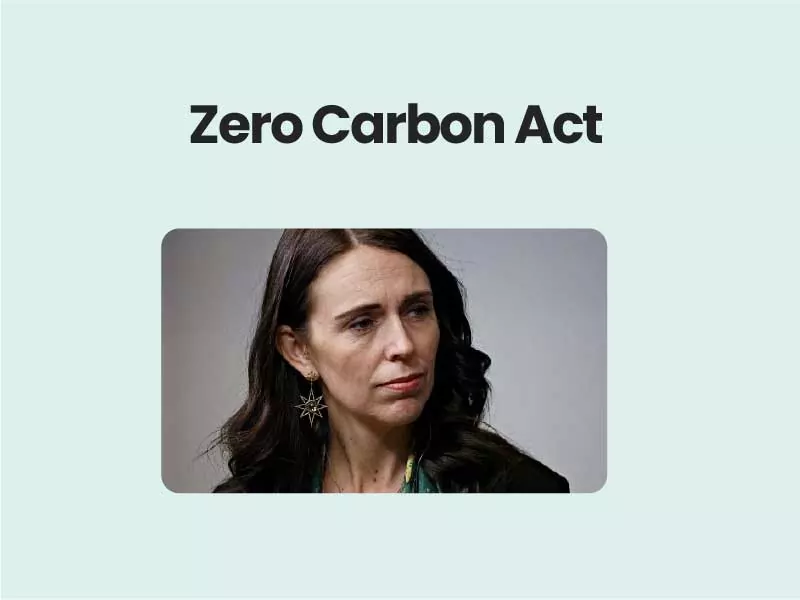Companion@360 → 7 Month programme to sharpen your writing skills → REGISTER NOW

Zero Carbon Act or Climate Change Response (Zero-Carbon) Amendment Act
- New Zealand has passed a law that aims to make the country almost carbon neutral by 2050.
- According to the New Zealand government, this is the first legislation in the world to make a legally binding commitment to living within 1.5 degrees Celsius of global warming.
- Its capacity to generate electricity from renewable resources is at 80 per cent, and it is working towards phasing out the use of offshore oil and gas.
- The government is working towards investing over $14.5 billion to better it’s public transport system and walking and cycling infrastructure over the next 10 years.
- The idea for the bill was first proposed by the youth-led climate organisation Generation Zero, who proposed and popularised the Bill before the 2017 New Zealand general elections.
- The Two basket Approach :
- The Act will set separate targets and pathways for long-lived greenhouse gases (mainly carbon dioxide and nitrous oxide) and short-lived greenhouse gases (mainly methane).
- Long-lived gases must go to net-zero by 2050 or sooner (accounting for carbon sinks). Short-lived gases must be significantly reduced to sustainable levels, but not zero.
- The Firewall Principle :
- The targets in the Act will apply to New Zealand’s domestic emissions only.
- This will create a ‘firewall’ between domestic action and international carbon trading, to ensure our own zero carbon transition is on track.
UPSC Prelims Mock Test Check Now
Climate change Legislation around the world
- According to Carbon Brief, there has been a 20-fold increase in the number of global climate change laws since 1997, when the Kyoto Protocol was signed.
- Globally, there are over 1500 laws on climate change, over 100 of which were introduced after the introduction of the Paris Agreement and over 28 of them explicitly reference the agreement.
Prelims cum Mains Batch 2022 Join
